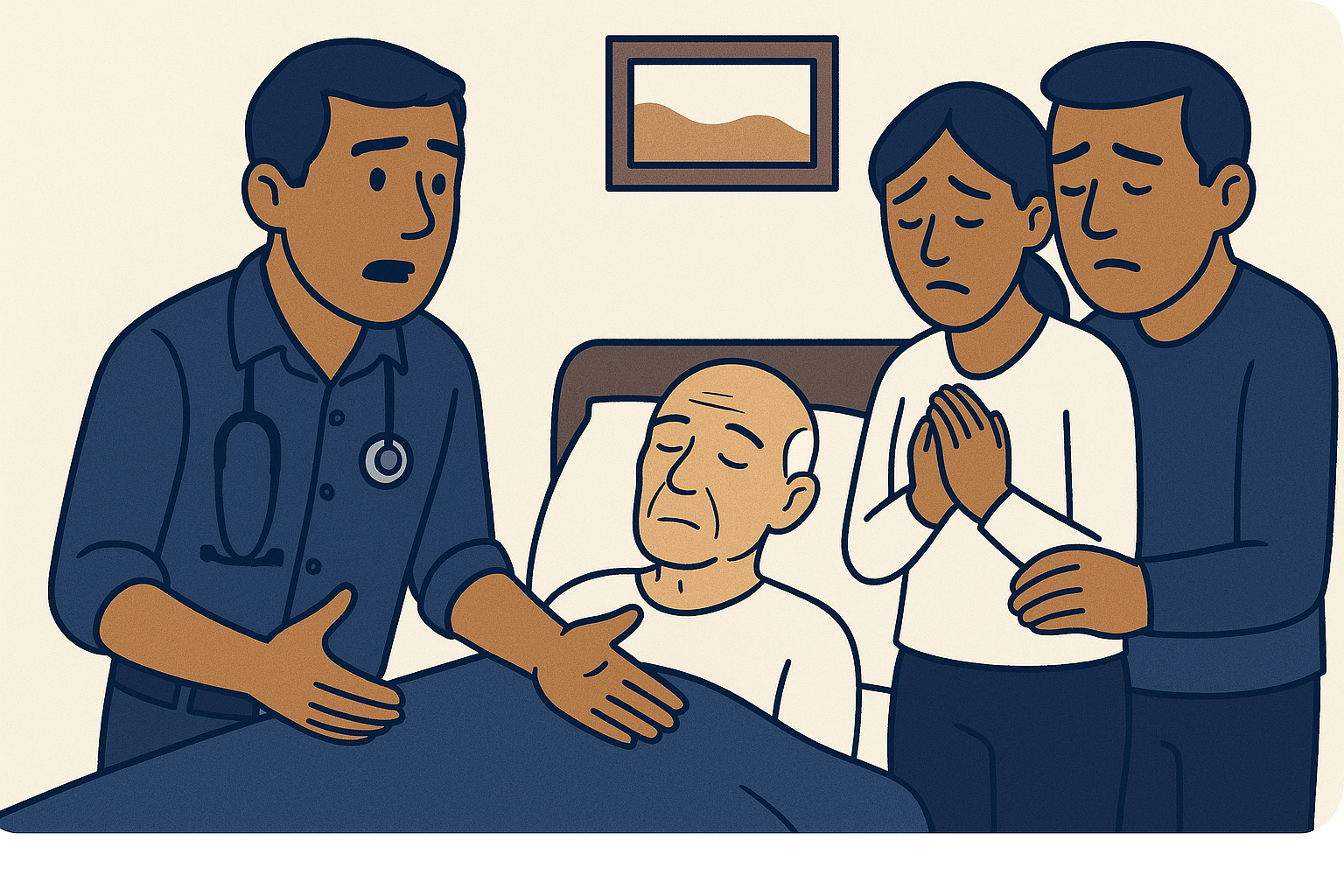A Gp's reflection on one of the most important conversations in medicine.
When Families Reach Out in Uncertainty
I got a call from a patient’s son. His father hadn’t eaten in two days. His sister was pacing outside the bedroom.
He’s not himself.
Should we call an ambulance?
There was worry, guilt, and that unspoken hope that someone else would decide what to do. This is something many of us in primary care encounter: a family, confused between concern, guilt, and uncertainty.
Looking Beyond the Tests
When I arrived, the patient was breathing slow. His hands were cool to the touch.
Not in pain and not distressed. Just tired.
Medically, there was nothing dramatically glaring. His recent tests were all fine. No infection or urgent findings.
But this felt different. This was like a turning point. The body was quietly letting go.
When Families Are Split on What to Do
His children stood at his bedside. One asked, “Should we take him in?”
The other said softly, “He wouldn’t want that.”
This kind of moment is hard. One part of the family leans toward action. The other feels the time for intervention may have passed.
Both want to do what’s right but no one’s told them what that is.
Framing the Options with Clarity and Care
This is where our words alone are not enough. Speak too gently, and they might not hear you. Too blunt, and the words can linger in the worst way.
We can take him to hospital. But I don’t think it will help him feel better.
It might actually make things harder.
If we keep him here, we can focus on comfort. On peace. On being together.
I paused. Silence is part of the care too.
Supporting the Family with a Plan
They asked if he’d be in pain so I tried to reassure them.
I explained what we’d do to keep him comfortable.
We agreed on a plan: who to call, what to expect, what might change.
We went through the medications he'd require. Morphine for pain, Anti-sickness for nausea, and Midazolam for when he's anxious or agitated. I could see this was too clinical for them. It was just adding to the confusion.
I assured them we'd follow-up. That the nurses were able to come and administer the medication if required. But I also knew that what they needed most wasn’t medical—it was reassurance and clarity.
Watching the Shift Happen
There was no big moment or a dramatic decision.
Just a slow shift in the house—from panic to presence.
From doing everything to simply being there.
The beeps, alarms, and rush of hospital corridors weren’t what this moment needed.
What it needed was love, calm, and hands being held.
Redefining What Care Means
These conversations are never easy. But they might be the most important ones we ever have.
Sometimes, the right thing to do is call that ambulance. But sometimes, the best care happens at home.
Science shapes medicine.
Humanness shapes the care.
Thanks for reading.
– Dr. Danial
